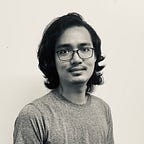Thinking Beyond
The majority of us were born and raised under our respective social norms and traditions. Since childhood, our environments have been literally built upon the same ideology and assumptions when it comes to views on religion, politics, and the economy. Those things altogether shape our lives in the teenage years and beyond. So, the question is whether it is good or bad to be shaped by the social norms of the environments where we were born and raised.
The bright side is that all religions and existing norms prohibit basic human morality violations such as stealing, killing, and adultery. In that way, we have been thriving as human beings in the world. However, in some cases, those standards of society lead us on the wrong paths in our lives.
In Buddhism, the majority cannot think beyond their own lives since the basic concept is the afterlife and samsara.
So, people tend to focus more on their lives on the other side. Contrary to western modern and radical society, Buddhists donate and do good deeds in the hope of securing a better afterlife instead of taking account of the next generations, the development of the country, and beyond. It is more obvious in areas where people strongly enclose themselves with those conservative ideologies. Consequently, people lost their most gifted power “Imagination”. They become deprived of the ability to reason and fathom beyond what they have been shaped throughout their lives by society. That does not actually culminate well. It brings negative impacts on society in the long term.
In Myanmar, you will see glittering pagodas and monasteries covered with gold, poor people with malnourishment, and ramshackle hospitals and schools in the same place. That is the sign of people feeding their ego to have a guarantee in the afterlife.
The root cause is not the religion itself. It is how people were instructed to define Buddha’s teachings throughout history.
To get out of the norms and existing belief systems, we need several tools. The first one is literature. If it is not an open society, it is difficult to get open opinions in the literature. So, the easiest way is to achieve English language proficiency. It is conceivable that different ideas and opinions are written or translated into English. Thus, we can be able to read new ideas and opinions.
Now, you have already acquired different ideas and opinions. But, you cannot shift from your original thinking as it has been shaped for so many years. Then, you need the second tool which is courage. There are so many educated, well-rounded people who cannot change their mindsets. The reason is that they do not have the courage to question their own beliefs and cannot dare to think beyond.
Thinking beyond is not a one-time change. It needs consistency and practice. Therefore, you need a third tool — Framework. Basically, it can guide you to question everything and think beyond. A useful framework might be:
- Why does the idea/assumption/opinion exist in the first place?
- Why do we accept it till now?
- How can we gauge the integrity of that idea/assumption/opinion set by society?
- Is there any alternative or opposite idea/assumption/opinion?
- Do we need to change it or not? Why?
- What would be the pros and cons of accepting the existing idea/ assumption/opinion or rejecting them?
In that way, we could think beyond what we have been shaped for years.
